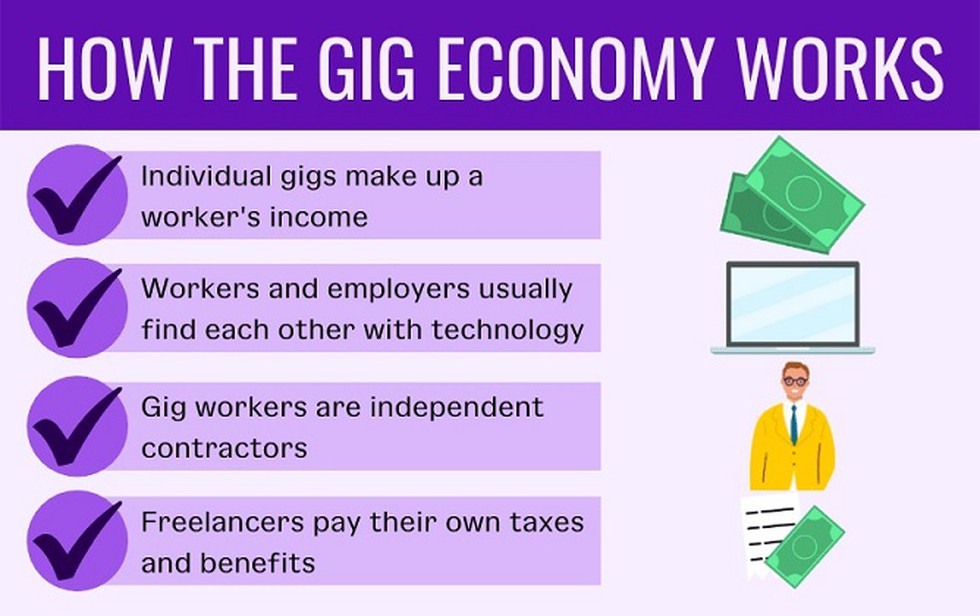
Gig Economy Employment Law: Navigating Work Dynamics
The gig economy, characterized by short-term and freelance work, has transformed the traditional employment landscape. As this trend continues to rise, it brings forth a host of legal considerations and challenges. In this article, we delve into the intricacies of employment law in the gig economy, exploring the rights, responsibilities, and evolving dynamics for both workers and employers.
The Rise of the Gig Economy
The gig economy, fueled by platforms connecting freelancers with businesses and individuals seeking services, has seen exponential growth. While offering flexibility and diverse opportunities, the gig economy has raised questions about the legal framework governing employment relationships in this dynamic and often unconventional work environment.
AstroidIT: Navigating Employment Law in the Gig Economy
For comprehensive insights and resources on employment law in the gig economy, visit AstroidIT. AstroidIT provides valuable information to help both gig workers and employers understand the legal landscape shaping their employment relationships in the evolving gig economy.
Defining Employment Status in Gig Work
One of the central challenges in gig work is determining the employment status of individuals. Employment law traditionally distinguishes between employees and independent contractors, each category with its own set of rights and responsibilities. In the gig economy, defining this status becomes complex due to the flexible nature of engagements.
Contractual Agreements and Gig Workers’ Rights
In the absence of traditional employment contracts, gig workers often operate based on gig platforms’ terms of service. Understanding these contractual agreements is crucial for gig workers to assert their rights. Employment law in the gig economy should evolve to address the unique aspects of gig work, ensuring fair treatment for workers.
Minimum Wage and Fair Compensation
Gig workers often face challenges in ensuring fair compensation for their services. Employment law mandates minimum wage standards, but gig economy dynamics, such as piece-rate pay or project-based work, may complicate the application of these standards. Regulations must adapt to guarantee fair compensation for gig workers.
Worker Benefits and Social Protections
Unlike traditional employees, gig workers often lack access to benefits like health insurance, retirement plans, and social protections. Employment law in the gig economy should explore innovative solutions to provide gig workers with a safety net, balancing the flexibility of gig work with essential worker benefits.
Challenges of Collective Bargaining
Traditional collective bargaining mechanisms are designed for large groups of employees working for a single employer. In the gig economy, where workers are dispersed and engage with multiple platforms, collective bargaining becomes a complex challenge. Employment law should explore avenues for collective representation and negotiation in this decentralized environment.
Addressing Discrimination and Fair Treatment
The gig economy has faced scrutiny regarding issues of discrimination and fair treatment. Employment law must adapt to address these concerns, ensuring that gig workers are protected from discrimination based on gender, race, or other factors, and promoting a culture of inclusivity and equal opportunities.
Safety and Occupational Health Standards
Ensuring the safety of gig workers, especially in roles involving physical activities or transportation, is a critical aspect of employment law. Standards for occupational health and safety must be extended to cover gig workers, regardless of the transient and decentralized nature of their engagements.
Privacy and Data Protection for Gig Workers
Gig workers often handle sensitive personal and client data through digital platforms. Employment law needs to incorporate regulations that protect the privacy and data rights of gig workers, establishing clear guidelines for the collection, storage, and use of personal information in the gig economy.
Navigating Taxation and Financial Planning
Gig workers, often classified as independent contractors, are responsible for managing their taxes and financial planning. Employment law should provide guidance on tax compliance and financial literacy for gig workers, ensuring they have the information and resources needed to navigate their financial responsibilities.
Conclusion: Shaping the Future of Gig Work
In conclusion, employment law in the gig economy plays a pivotal role in shaping the future of work. As the gig economy continues to grow, regulations must evolve to provide a fair and protective legal framework for both gig workers and the platforms they engage with. Visit AstroidIT for comprehensive resources on employment law in the gig economy, offering insights into the evolving landscape of gig work relationships.




